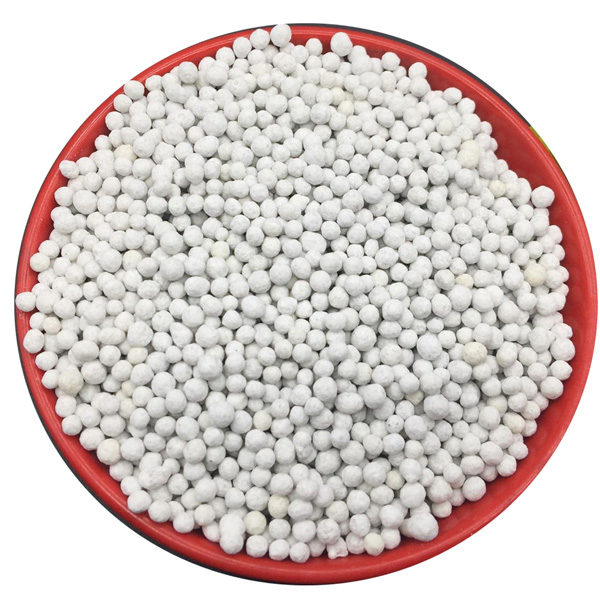
12 月 . 09, 2024 20:43 Back to list
Choosing the Right Potassium Fertilizer for Optimal Potato Growth and Yield
The Importance of Potassium Fertilizer for Potatoes
Potatoes are one of the most widely consumed crops globally, providing essential nutrients and serving as a dietary staple in many cultures. However, to achieve optimal yields, farmers must pay close attention to the various nutrient requirements of potato plants, with potassium (K) being a critical component. This article explores the significance of potassium fertilizer in potato cultivation, examining its advantages and best practices for application.
Why Potassium is Vital for Potatoes
Potassium plays several essential roles in plant growth and development. It is a macronutrient that aids in various physiological processes, including photosynthesis, protein synthesis, and enzyme activation. One of the key functions of potassium is its role in regulating water uptake and maintaining plant hydration. This is particularly important for potatoes, which have a high water content and are sensitive to drought conditions.
Moreover, potassium enhances tuber quality and size. Adequate potassium levels contribute to better disease resistance, improved carbohydrate metabolism, and stronger cell walls, resulting in more robust and healthier plants. Potatoes with sufficient potassium not only yield more but also have better texture and flavor, making them more appealing to consumers.
Benefits of Potassium Fertilizer
1. Improved Yield and Quality Studies have shown that potassium application can lead to significant increases in tuber yield. Proper potassium fertilization results in larger and more uniform potatoes, which fetch higher market prices.
2. Enhanced Disease Resistance Potatoes are susceptible to various diseases, and potassium helps strengthen their defense mechanisms. It boosts the plant's natural immune responses, making them less prone to infections such as late blight and other common potato diseases.
3. Efficient Water Management Potassium helps regulate stomatal opening, affecting transpiration rates and thus optimizing water usage. This attribute is especially crucial in areas where water scarcity is a concern, as potatoes thrive in well-watered conditions.
4. Better Nutrient Uptake A balanced supply of potassium improves the uptake of other essential nutrients. This synergistic effect leads to healthier plants with improved overall growth and productivity.
potassium fertilizer for potatoes

Best Practices for Applying Potassium Fertilizer
When it comes to applying potassium fertilizer for potatoes, proper timing and method are crucial. Here are some best practices to consider
1. Soil Testing Before applying potassium, conduct a soil test to determine existing nutrient levels. This assessment helps to make informed decisions about the quantity of potassium fertilizer needed, preventing over-application that could lead to soil nutrient imbalances or environmental issues.
2. Fertilizer Type Potassium fertilizer comes in various forms, including potassium chloride (KCl), potassium sulfate (K2SO4), and others. Selecting the right type of fertilizer depends on the specific soil conditions and the crop’s nutrient needs. For instance, potassium sulfate is beneficial in sulfate-deficient soils and is less likely to increase salinity.
3. Application Timing Timing is critical for potassium application. It is often best to apply potassium fertilizer at planting or during the early growth stages to ensure the plant can utilize the nutrient effectively. Split applications can also be beneficial, allowing for better absorption during critical growth phases.
4. Method of Application Potassium can be applied through broadcasting, banding, or fertigation (injecting fertilizers through irrigation). Each method has its advantages, so selection should be based on soil conditions, crop stage, and the specific type of fertilizer used.
5. Monitoring Plant Health Regularly monitor the health and growth of potato plants throughout the growing season. This can involve visual inspections for signs of nutrient deficiency or excess and adjusting fertilization practices as necessary.
Conclusion
In conclusion, potassium fertilizer is crucial for the successful cultivation of potatoes, influencing yield, quality, and overall plant health. By understanding the vital role potassium plays and implementing best practices for its application, farmers can enhance their potato production effectively. With the right strategies, not only can potato growers maximize their output, but they can also contribute to a more sustainable agricultural system that meets the growing global demand for this essential crop.
-
Premium 8 12 16 Fertilizer – High-Efficiency Compound & Granular NPK Supplier
NewsJun.10,2025
-
High Quality Agricultural Grade NPK Fertilizer Manufacturer & Supplier Reliable Factory Price
NewsJun.10,2025
-
Organic Fertilizer for Corn Boost Yield Sustainably
NewsJun.10,2025
-
Organic Fertilizer for New Plants Natural Growth Boost & Eco Nutrients
NewsJun.10,2025
-
Optimized Hydroponic NPK Fertilizer – Fast Growth & Nutrients
NewsJun.09,2025
-
Top-Rated NPK Fertilizer for Fruit Trees - Boost Growth & Yield
NewsJun.09,2025
